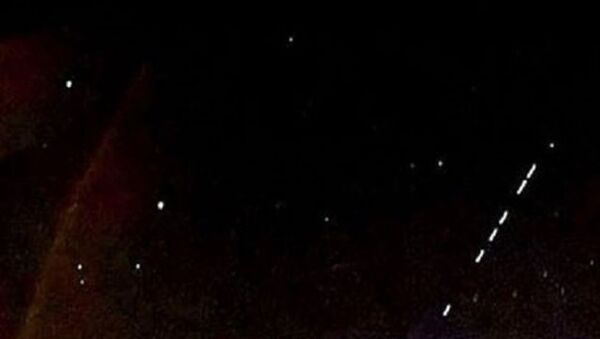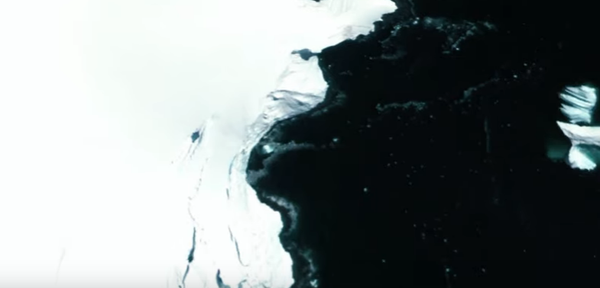Tonnes of photos and videos of mystical sequential lights have been shared by Turkish citizens on social media over the weekend, with netizens trying to guess whether the objects were of human origin or whether they should be of any interest to Turkey's most prominent UFO hunters. According to the local newspaper Daily Bash, the weird constellations were first spotted on Saturday night by observers in Istanbul and some other Turkish provinces, including Kırklaraeli and Tekirdağ.
Many enthusiasts rushed to share the footage of glowing objects, suggesting that the arrival of aliens should now be anticipated at any moment. Others, however, were more reserved in their expectations, arguing that the serial lights indidcated that they were Starlink satellites, recently launched by Elon Musk’s SpaceX company.
Tweet: Let's get ready close to the arrival of aliens with sequential lights in the sky
Gökyüzünde sıralı ışıklar görülmüş uzaylıların gelmesi yakındır hazirlanalim pic.twitter.com/Nq93gbBxV7
— kaafamızagore (@Kaafama_gore) April 26, 2020
Tweet: The lights you saw when you looked at the sky yesterday evening in Istanbul, Yalova, Edirne, Tekirdag and Kirklareli were Starlink satellites that Elon Musk sent to space to provide internet.
Dün akşam İstanbul, Yalova, Edirne, Tekirdağ ve Kırklareli'nde gökyüzüne baktığınızda gördüğünüz ışıklar, Elon Musk'ın internet sağlamak için uzaya gönderdiği Starlink uydularımış. #ElonMusk #Starlink pic.twitter.com/FWjx9wUkA2
— Kahraman Uzan (@kahramania35) April 26, 2020
Tweet: The lights that appear when looking at the sky from Tekirdağ and Kırklareli this evening are said to be the Starlink satellites that Elon Musk sent to space to provide internet to the world.
Bu akşam Tekirdağ ve Kırklareli'nden gökyüzüne bakıldığında görünen ışıklar, Elon Musk'ın tüm dünyaya internet sağlamak için uzaya gönderdiği Starlink uydularının olduğu belirtiliyor.#SAMSUN#ElonMusk#pazar pic.twitter.com/JsRVhx81mw
— E. Ayar 🇹🇷 #EvdeKal🏠 (@EMRAHAYAR55) April 26, 2020
It is not the first time recently, when star-gazers have been puzzled by the appearance of weird patterns in the night sky. Similar gleaming sequences have recently been observed in different parts of Europe in mid-April, with many soon blaming it on the brain-children of the SpaceX CEO.
Musk’s SpaceX project promises to bring internet access to the most remote areas of the Earth with the help of thousands of small, low-orbit satellites.
The project has been criticised by many stargazers for making it significantly more difficult to study the night sky, as many astronomical images can now be corrupted due to the satellites’ presence. The last Starlink launch was conducted on 22 April by a Falcon 9 launcher from the Kennedy Space Center in Florida.



